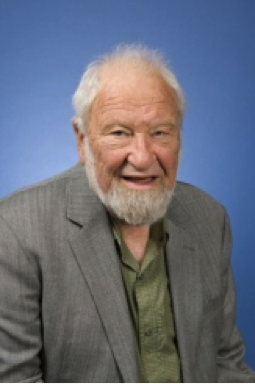Difference between revisions of "David Rapoport"
(Added: sourcewatch, employment.) |
m (Robin moved page David C. Rapoport to David Rapoport: Shorter, simpler) |
||
| (4 intermediate revisions by the same user not shown) | |||
| Line 2: | Line 2: | ||
|wikipedia=https://en.wikipedia.org/wiki/David_C._Rapoport | |wikipedia=https://en.wikipedia.org/wiki/David_C._Rapoport | ||
|amazon=https://www.amazon.co.uk/s/ref=dp_byline_sr_book_1?ie=UTF8&text=David+C.+Rapoport&search-alias=books-uk&field-author=David+C.+Rapoport&sort=relevancerank | |amazon=https://www.amazon.co.uk/s/ref=dp_byline_sr_book_1?ie=UTF8&text=David+C.+Rapoport&search-alias=books-uk&field-author=David+C.+Rapoport&sort=relevancerank | ||
| − | | | + | |description=“One of the founding figures of terrorism studies” |
| − | + | |image=David C. Rapoport.png | |
| − | |image=David C. Rapoport. | ||
|birth_date=January 7, 1929 | |birth_date=January 7, 1929 | ||
|birth_place=Pittsburgh, Pennsylvania, USA | |birth_place=Pittsburgh, Pennsylvania, USA | ||
| Line 13: | Line 12: | ||
|employment= | |employment= | ||
}} | }} | ||
| − | '''David C. Rapoport''' has been termed “one of the founding figures of terrorism studies”<ref>John Horgan and Kurt Braddock eds., Terrorism Studies (London: Routledge, 2012) p.1</ref> | + | '''Dr David C. Rapoport''' has been termed “one of the founding figures of terrorism studies”<ref>John Horgan and Kurt Braddock eds., Terrorism Studies (London: Routledge, 2012) p.1</ref> |
==Background== | ==Background== | ||
| Line 19: | Line 18: | ||
==Career== | ==Career== | ||
| − | + | David Rapoport's first job was at [[Columbia University]], as a research associate at the [[Institute of War and Peace]]. Later he was a lecturer at [[Barnard College]]. In 1962 he joined the [[UCLA]] political science department. Initially a political theorist, in the late 1960s he became interested in "[[terrorism]]" and in 1969 taught the first terrorist course in the U.S.<ref name=ucla>[http://www.polisci.ucla.edu/content/david-rapoport UCLA Department of Political Science]. ''www.plisci.ucla.edu''.</ref> He founded ''[[Terrorism and Political Violence]]'', which became “one of two journals which has made terrorism into an academic field”.<ref>Daryl R. Bullis and Richard D. Irving “Journals Supporting Terrorism Research: Investigation into their Impact on the Social Sciences” College and Research Libraries (74:2) March 2013</ref> | |
==Publications== | ==Publications== | ||
Latest revision as of 18:37, 4 February 2021
(academic, “terror expert”) | |
|---|---|
 | |
| Born | January 7, 1929 Pittsburgh, Pennsylvania, USA |
| Founder of | Terrorism and Political Violence |
“One of the founding figures of terrorism studies” | |
Dr David C. Rapoport has been termed “one of the founding figures of terrorism studies”[1]
Contents
Background
Rapoport received his Ph.D. at University of California, Berkeley in 1960, with a dissertation entitled Praetorianism: Government without Consensus.
Career
David Rapoport's first job was at Columbia University, as a research associate at the Institute of War and Peace. Later he was a lecturer at Barnard College. In 1962 he joined the UCLA political science department. Initially a political theorist, in the late 1960s he became interested in "terrorism" and in 1969 taught the first terrorist course in the U.S.[2] He founded Terrorism and Political Violence, which became “one of two journals which has made terrorism into an academic field”.[3]
Publications
His co-authors include Yonah Alexander, Leonard Weinberg and Max Taylor.
References
- ↑ John Horgan and Kurt Braddock eds., Terrorism Studies (London: Routledge, 2012) p.1
- ↑ UCLA Department of Political Science. www.plisci.ucla.edu.
- ↑ Daryl R. Bullis and Richard D. Irving “Journals Supporting Terrorism Research: Investigation into their Impact on the Social Sciences” College and Research Libraries (74:2) March 2013